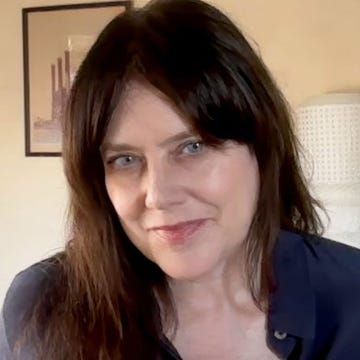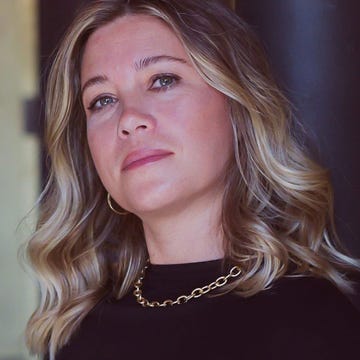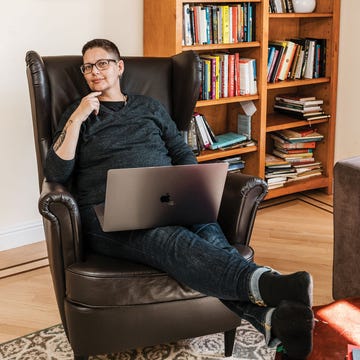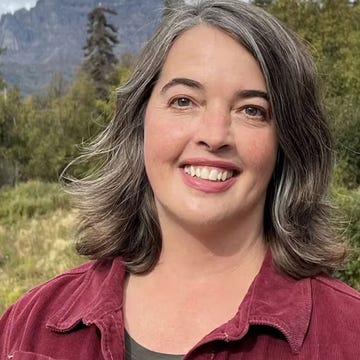I’m very interested in networks of human beings and the way that we organize ourselves into groups, but also the way that we refract each other and sort of reflect each other and become different people, depending on who we are near,” says Angela Flournoy. The author is speaking to me about her deeply intelligent sophomore novel, The Wilderness, on Zoom from her dining table in Harlem. Flournoy began the book in 2016, a year after her debut, The Turner House, was published to much acclaim. Both novels employ multiple points of view, and both are thematically interested in home.
Deftly weaving back and forth in time, Flournoy’s second novel tells the story of the relationships between Desiree, Nakia, Monique, January, and Danielle, five millennial Black women, four of them friends who create a feeling of home with one another as they navigate the first two decades of their adult lives in Los Angeles and New York City. The novel opens in 2008, as Desiree, who grew up in L.A., accompanies her ailing grandfather to Switzerland, where he plans to die; this estranges her from her sister, Danielle. Later, Desiree follows her best friend, Nakia, to New York City and stays when Nakia returns to L.A.
The book captures years of intimacy between the friends with grace and realism. However, it’s also remarkable for its organic understanding of contemporary politics. Flournoy says, “Life is political, and I can’t remember a time when I did not have that awareness.” She notes that when she was not even 10 years old, a family member was killed by the police; at various points, other family members were incarcerated for minor drug infractions, and a queer family member was lost to AIDS in the early ’90s.
This article appears in Issue 33 of Alta Journal.
SUBSCRIBE
She explains that she loves L.A., where she grew up working-class and where her family has a century-long history and where she wrote much of this novel, but she has not figured out how to live there, with the kinds of problems it has, as an adult. Her grandmother was part of the Great Migration, moving to the city in the late 1920s and settling in now-historic South Central when Central Avenue was “a big, bustling thoroughfare of Black life.” Flournoy notes that the population of African Americans in Los Angeles has since become small; while the community there is beautiful, it’s embattled. “That’s not necessarily something that is unique to L.A.,” she adds. Particularly in passages about Desiree’s memories of the city, Flournoy is exploring a very specific sense of loss, but also one that “a lot of Black and brown readers will see as more universal to also the places that they grew up.”
The novel’s conclusion came to her while she was looking out from the rooftop of the Soho Warehouse at downtown L.A.’s Sixth Street Bridge, which had reopened. As a fan of activist-writer Mike Davis, she felt that it was weird to be looking at a sparkly new bridge while standing a stone’s throw from Skid Row. Davis had once described L.A. as existing on the “bad edge of postmodernity,” and Flournoy felt then that she was standing on the bad edge.
Fittingly, much of this book was written with writer friends—Jade Chang, Aja Gabel, Jean Chen Ho, and Xuan Juliana Wang—most of whom lived within walking distance in L.A. They would meet at local coffee shops and do “pomodoros.” Flournoy says, “This novel in particular…needed to be written at least looking at friends, if not actually talking or collaborating with them.” As with The Turner House and her current project, a memoir about grief and motherhood, she wrote the first draft by hand. When she writes this way, it feels closer to play and she’s more apt to try things.
For any novel to be successful, Flournoy says, there has to be a sense that not only is a reader changing and a character changing, but the writer is also changing. She came to understand that in the United States, “people are just going to have to figure out how to be accountable to one another in a way that is much more radical and all-encompassing than your small nuclear family or your little ethnic group. People are going to have to figure out more expansive ways of being in solidarity and community with one another.”•
Anita Felicelli is Alta Journal ’s books editor and the author of How We Know Our Time Travelers, Chimerica, and Love Songs for a Lost Continent.













